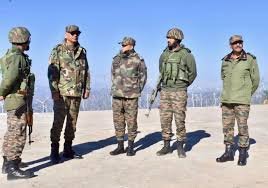NEW DELHI, September 19, 2025 : Jailed separatist leader and JKLF chairman Yasin Malik has told the Delhi High Court that Atal Bihari Vajpayee’s bold Kashmir peace initiative in 2000 had support from across India’s political spectrum, including former Prime Ministers Manmohan Singh, V.P. Singh, I.K. Gujral, Congress leader Sonia Gandhi, and senior Left leaders.
Affidavit Highlights
-
Malik said he and Mirwaiz Umar Farooq met Sonia Gandhi and Manmohan Singh in Delhi, followed by meetings with V.P. Singh, I.K. Gujral, and Left leaders A.B. Bardhan and Prakash Karat.
-
According to Malik, these discussions led to the entire opposition endorsing Vajpayee’s ceasefire initiative during Ramzan.
-
He claimed the IB under Ajit Doval, NSA Brajesh Mishra, and RK Mishra of ORF facilitated his interactions with Delhi’s leadership, showing Vajpayee was “serious about talks.”
-
Malik said he even contacted Syed Salahuddin of the United Jihad Council and urged him not to oppose the ceasefire, while Hurriyat leaders including Syed Ali Shah Geelani, Abdul Ghani Lone, Mirwaiz Umar, Abbas Ansari and Malik himself issued a joint statement backing it.
-
Despite consensus, the goodwill was damaged by a fidayeen attack at Srinagar airport, which Malik says humiliated Vajpayee.
Opposition’s Role
Malik claimed the support of the Congress was crucial. He said he attended a meeting at journalist Prem Shankar Jha’s residence with Manmohan Singh and Najma Heptullah present. After three hours of discussion, the Congress delegation led by Manmohan Singh met Vajpayee the very next day and formally endorsed the ceasefire.
Passport Issuance & Travels
-
Malik stated that with Vajpayee and L.K. Advani’s approval, he was issued a passport in 2001, the first in his life.
-
He claimed he traveled freely to the US, UK, Saudi Arabia, and Pakistan on valid visas, promoting a non-violent and democratic resolution of the Kashmir issue.
-
Malik stressed he had never violated visa norms nor fled abroad.
Broad Consensus, Rare Moment
Malik described this period as a rare moment of political unity where government, opposition, and separatists aligned briefly in support of peace. However, he argued that sabotage by fringe elements and later political shifts undermined the process.



















